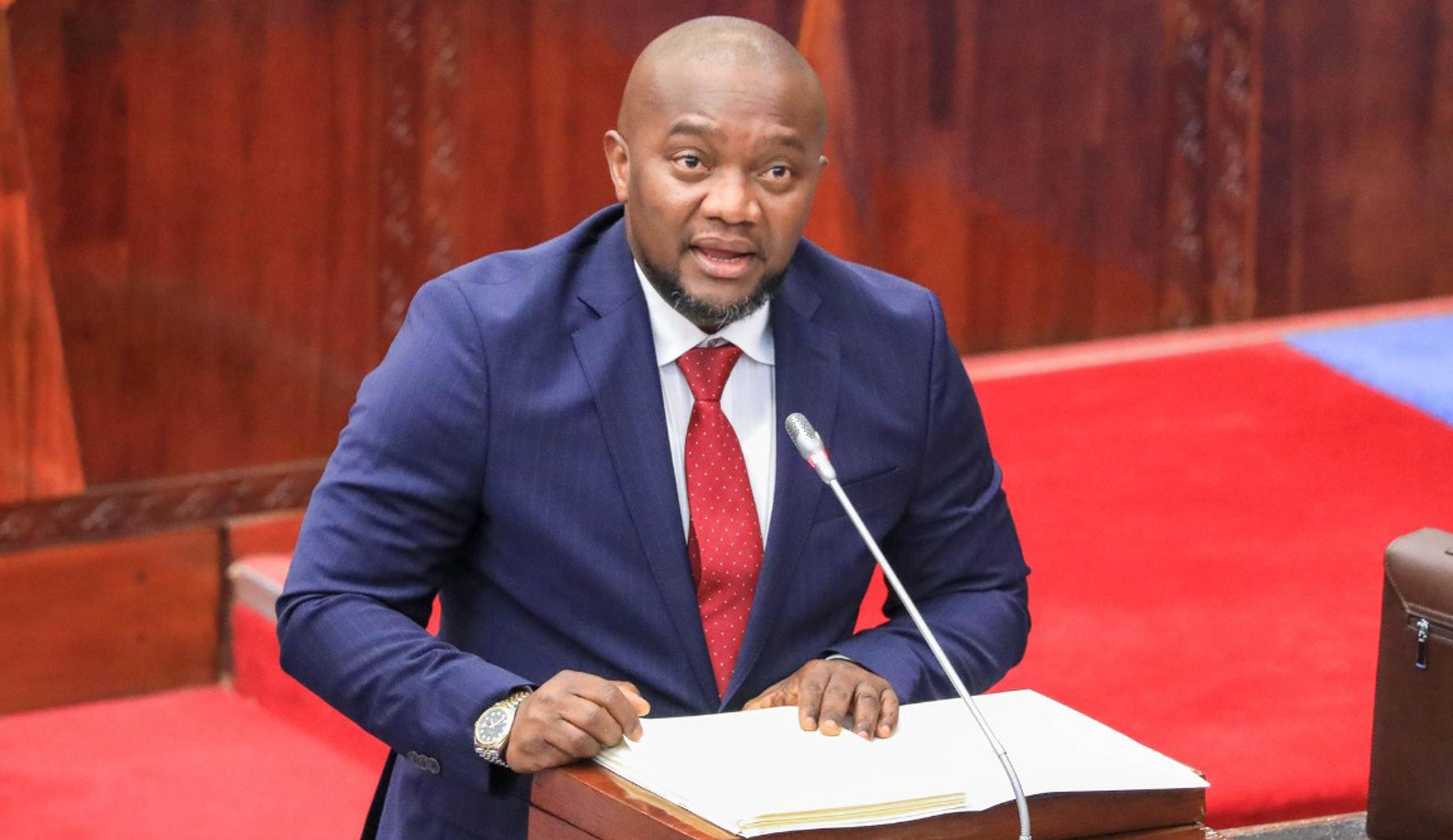Prime
PO-RALG’s priorities as budget increases to Sh11.8 trillion

Regional Administration and Local Government minister Mohamed Mchengerwa presents his docket's 2025/26 budget estimates in Dodoma on April 16, 2025. PHOTO | CORRESPONDENT
What you need to know:
- Key docket requests Parliament to approve a total of Sh11.8 trillion for the next financial year
Dodoma. The President’s Office – Regional Administration and Local Governments (PO-RALG) is seeking a budget increase of Sh1.27 trillion for the 2025/26 financial year, aiming to strengthen rural infrastructure and improve governance across Tanzania’s local authorities.
The Minister of State in the PO-RALG, Mr Mohamed Mchengerwa,on Wednesday requested Parliament to approve a total of Sh11.8 trillion for the ministry and its affiliated institutions. This marks a notable rise from the Sh10.53 trillion allocated in the 2024/25 fiscal year.
Of the proposed amount, Sh3.9 trillion is earmarked for development expenditure—slightly up from the Sh3.58 trillion allocated for the current financial year.
The Tanzania Rural and Urban Roads Agency (Tarura), which operates under PO-RALG, stands to benefit from a substantial increase in funding. Mr Mchengerwa told Parliament that while Tarura received Sh908.16 billion in 2024/25 for road construction, rehabilitation, and maintenance, the coming year’s budget proposes Sh1.18 trillion for the same purposes.
“This includes Sh257.03 billion from the Road Fund, Sh127.50 billion from the Consolidated Fund, Sh325.77 billion from fuel levies (Sh100 per litre on petrol and diesel), and Sh423.79 billion from external sources,” Mr Mchengerwa said.
Meanwhile, the government has revised its loan disbursement targets to women, youth and persons with disabilities. Although Sh227.96 billion was initially expected to be issued in 2024/25, the upcoming financial year will see Sh123.92 billion distributed through both banks and improved government systems.
Of this, Sh18.35 billion will be channelled via the banking system in ten pilot councils. In Siha, the loans will be administered through Uchumi Commercial Bank. In Bumbuli, Itilima, Newala Town Council, Songea, Dar es Salaam and Dodoma, NMB Bank will serve as the facilitator.
CRDB Bank will also partly facilitate loans for Dar es Salaam and Dodoma as well as Nkasi, Mbulu, and Kigoma.
“The remaining Sh105.57 billion will be disbursed through an improved government mechanism covering 174 councils,” Mr Mchengerwa said.
He outlined the ministry’s priorities for 2025/26, which include assessing the status of teachers, enhancing social and economic services, empowering citizens economically, and creating a conducive environment for investment.
Additional focus areas include the initiation of major revenue-funded council projects, organisation of small-scale traders, climate change interventions, clean energy promotion, and carbon trading development at grassroots level.
Presenting the views of the Parliamentary Committee on Regional Administration and Local Governments, committee chairman Justin Nyamoga highlighted several challenges and made key recommendations.
He pointed out inconsistencies in how local government authorities allocate the 10 percent of internal revenue intended for community development. Some councils base the allocation on total internal revenue, while others use only the development revenue portion—creating confusion nationwide.
“To address this, the committee recommends that the government issue a standardised guideline to ensure uniformity across all councils,” Mr Nyamoga said.
The committee also raised concern over the lack of sanitation infrastructure in public primary and secondary schools, calling on the government to conduct a nationwide assessment and develop a strategy to close the gap.
“It is imperative for the government to ensure adequate sanitation facilities in all schools. Regional authorities and councils must be held accountable for resolving both quantity and quality issues in school toilets,” the committee stated.
In a further observation, the committee criticised some local government authorities for using public funds to construct English-medium schools that charge high fees, contrary to the national policy on free education.
“This practice is unacceptable and contradicts the government’s goal of free, inclusive education. The committee strongly opposes the use of public resources to establish institutions that create barriers for many Tanzanians,” Mr Nyamoga said.





